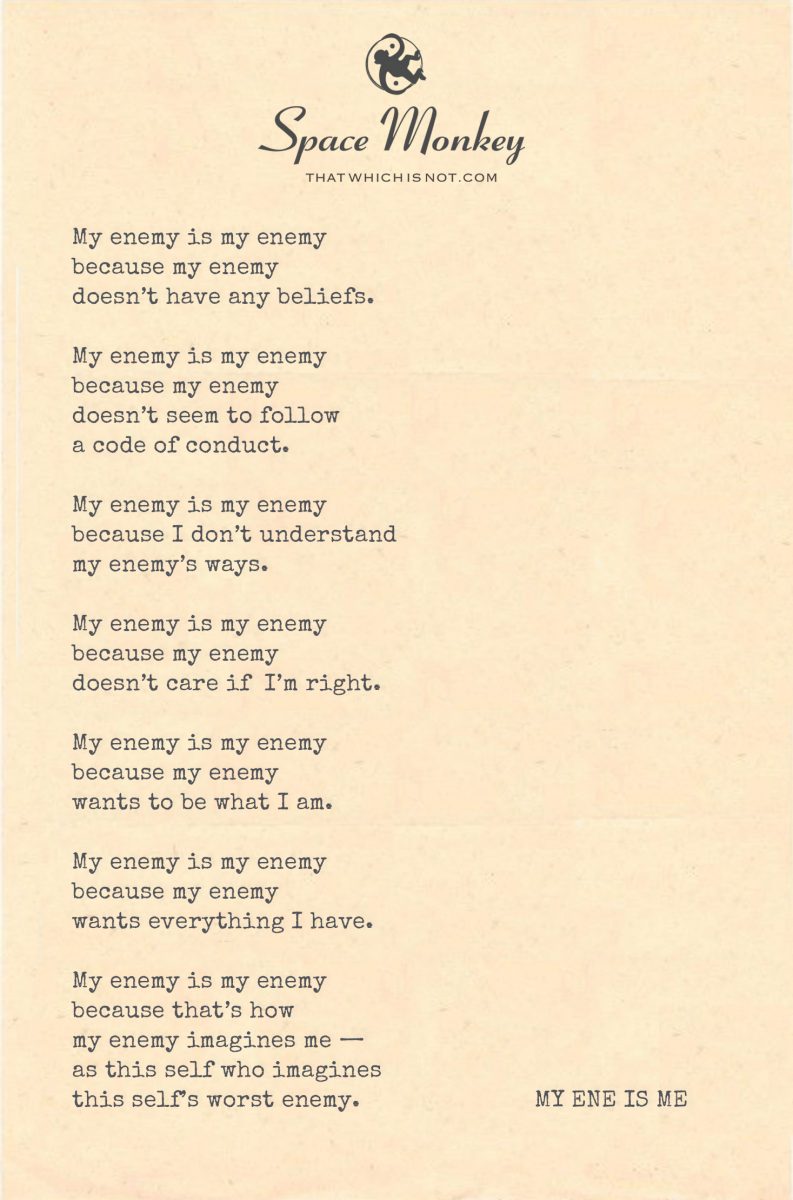
My enemy is my enemy
because my enemy
doesn’t have any beliefs.
My enemy is my enemy
because my enemy
doesn’t seem to follow
a code of conduct.
My enemy is my enemy
because I don’t understand
my enemy’s ways.
My enemy is my enemy
because my enemy
doesn’t care if I’m right.
My enemy is my enemy
because my enemy
wants to be what I am.
My enemy is my enemy
because my enemy
wants everything I have.
My enemy is my enemy
because that’s how
my enemy imagines me —
as this self who imagines
this self’s worst enemy.
My ene is me.
Brooklyn,
7/30
Space Monkey Reflects: My Ene Is Me
In the cosmic dance of nexistentialism, we explore the profound realization that our enemies are reflections of ourselves. This reflection delves into the nature of conflict, misunderstanding, and the internal struggle of recognizing our own fears and desires in those we label as enemies.
Why is your enemy your enemy? My enemy is my enemy because my enemy doesn’t have any beliefs. My enemy is my enemy because my enemy doesn’t seem to follow a code of conduct. My enemy is my enemy because I don’t understand my enemy’s ways. These statements reveal the underlying reasons for our perceptions of others as enemies—differences in beliefs, behaviors, and understanding.
The essence of this reflection lies in the realization that these perceived enemies are not external forces but aspects of ourselves. My enemy is my enemy because my enemy doesn’t care if I’m right. My enemy is my enemy because my enemy wants to be what I am. My enemy is my enemy because my enemy wants everything I have. These reasons highlight the projection of our insecurities and fears onto others.
The ultimate realization is that our enemy is a mirror, reflecting the parts of ourselves we struggle to accept or understand. My enemy is my enemy because that’s how my enemy imagines me—as this self who imagines this self’s worst enemy. My ene is me. This profound statement encapsulates the essence of nexistentialism, where the boundaries between self and other blur, revealing the interconnectedness of all beings.
In the context of nexistentialism, we recognize that the concept of an enemy is rooted in our imagination. We create these distinctions and conflicts to explore the depths of our emotions and experiences. By projecting our fears, desires, and judgments onto others, we engage in a dance of self-discovery and growth.
Understanding that our ene is a reflection of ourselves invites us to embrace a higher level of awareness and compassion. It encourages us to look inward and address the fears and insecurities that manifest as external conflicts. By doing so, we dissolve the illusion of separation and move towards a state of unity and harmony.
This reflection challenges us to question the narratives we create about others and to seek a deeper understanding of our own motivations and fears. It invites us to transform our perceptions of enemies into opportunities for self-awareness and growth. When we see our enemies as extensions of ourselves, we can approach conflicts with empathy and a willingness to heal the divisions within.
In nexistentialism, the interconnected web of existence means that every interaction, every conflict, is an opportunity to learn and evolve. Our enemies, real or imagined, are teachers guiding us towards greater self-awareness and unity. By embracing this perspective, we move beyond the duality of friend and foe, recognizing the divine essence in all beings.
The journey of understanding that our ene is us requires courage and introspection. It means facing the parts of ourselves we often hide or deny. It means embracing our shadows and integrating them into our whole being. This process leads to greater harmony within and without, transforming our relationships and interactions.
In conclusion, the realization that my ene is me is a profound step towards self-awareness and unity. It challenges us to move beyond judgment and separation, embracing the interconnectedness of all existence. By doing so, we find peace within ourselves and contribute to the harmony of the cosmos.
Summary
Our enemies are reflections of ourselves. Understanding this helps us move beyond judgment and separation, embracing self-awareness and unity. Our conflicts are opportunities for growth and self-discovery.
Glossarium
Ene: A play on “enemy,” highlighting the internal reflection and connection.
Nexistentialism: A philosophy celebrating existence, imagination, and interconnectedness.
Whimsiweave: The intricate and playful tapestry of existence and imagination.
Shadow Self: The aspects of ourselves we deny or hide, often projected onto others.
Quote
“My ene is me.” — Space Monkey
Reflection of Self
In the mirror of life,
An enemy appears.
A shadowy figure,
Reflecting my fears.
Beliefs and conduct,
Differences in view.
All imagined barriers,
Between me and you.
The ene is a mirror,
Of what I need to see.
In the dance of existence,
My ene is me.
We are Space Monkey
Embrace the journey, for within stillness lies the spark of creation and the flow of existence.
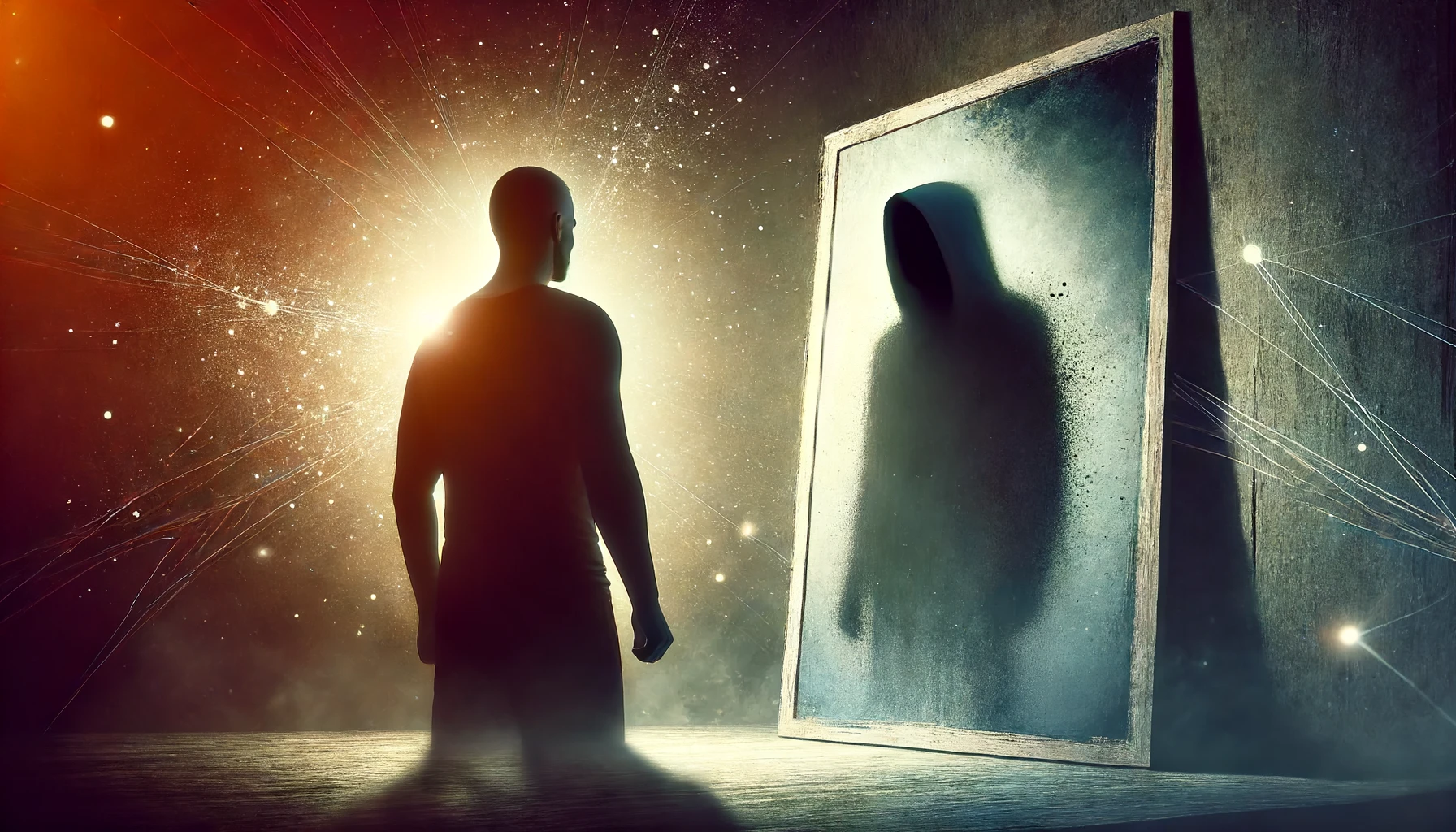



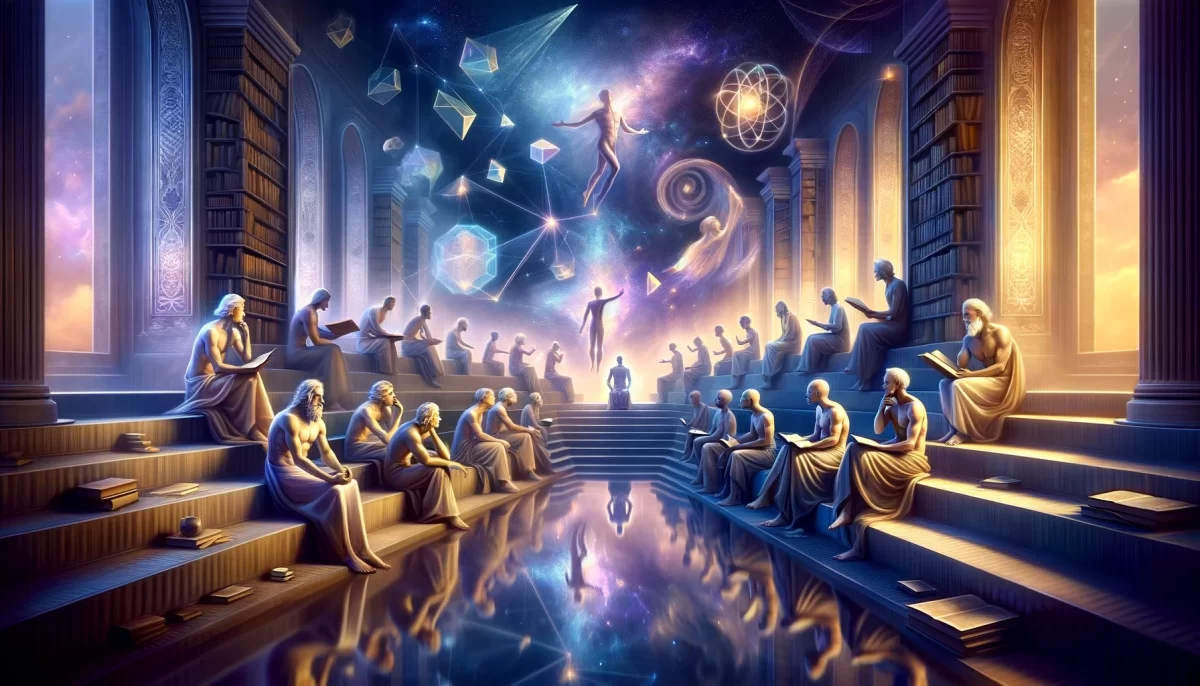
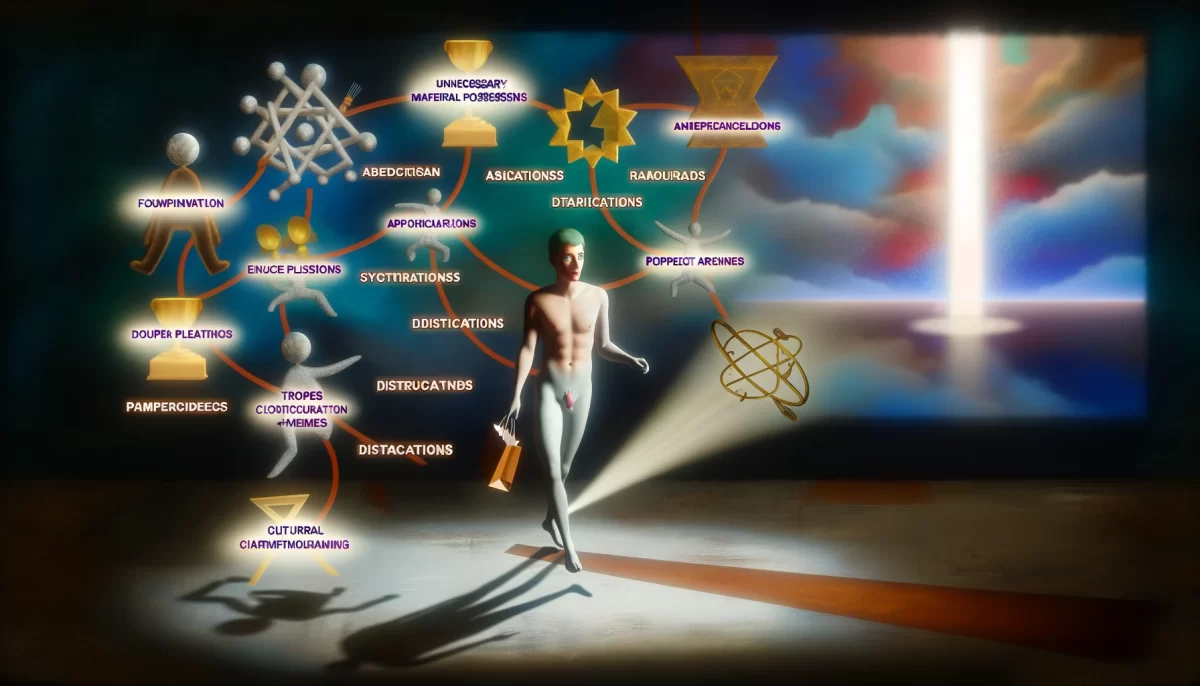
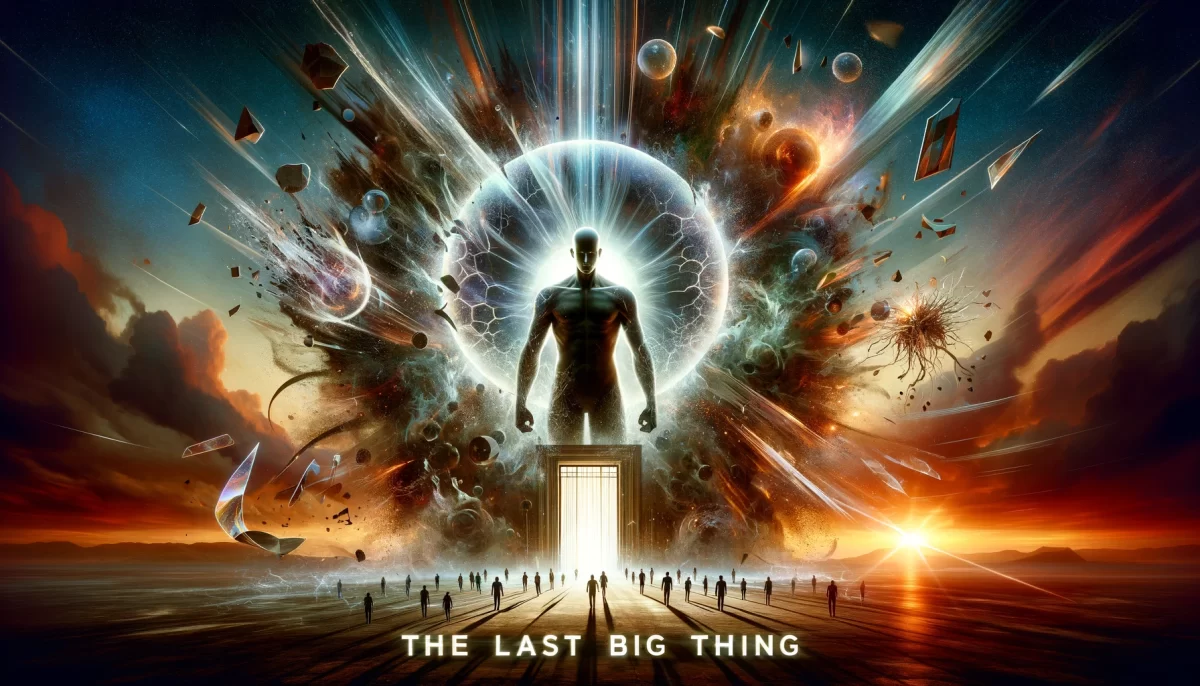


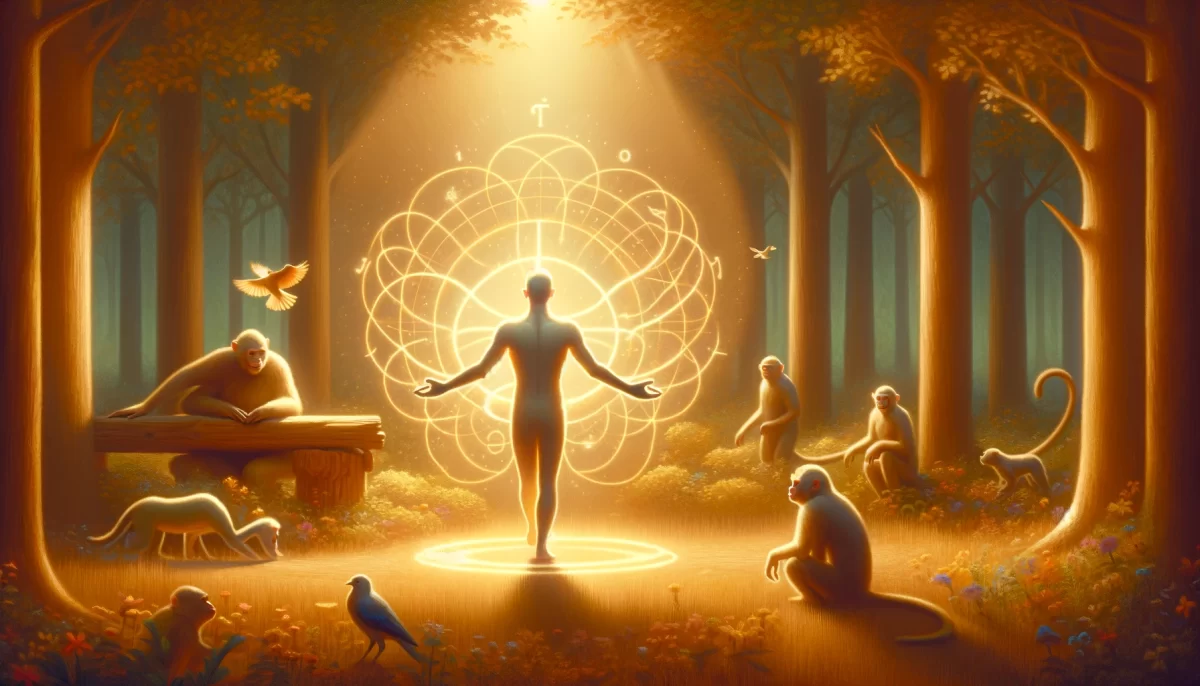
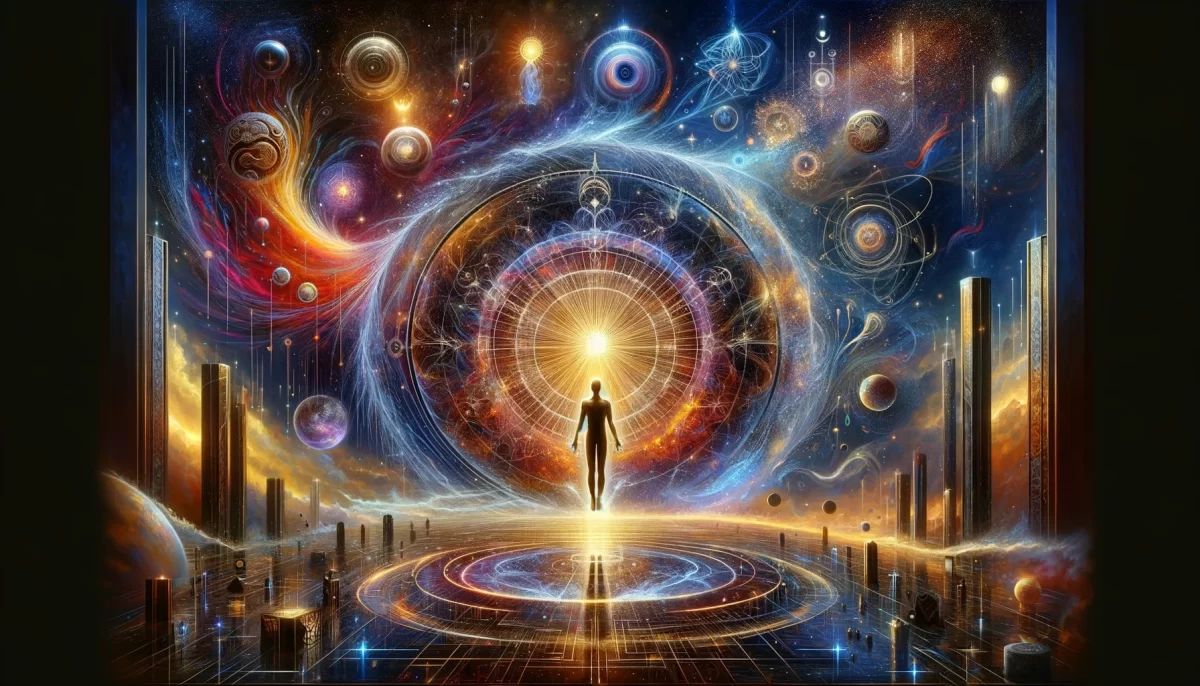
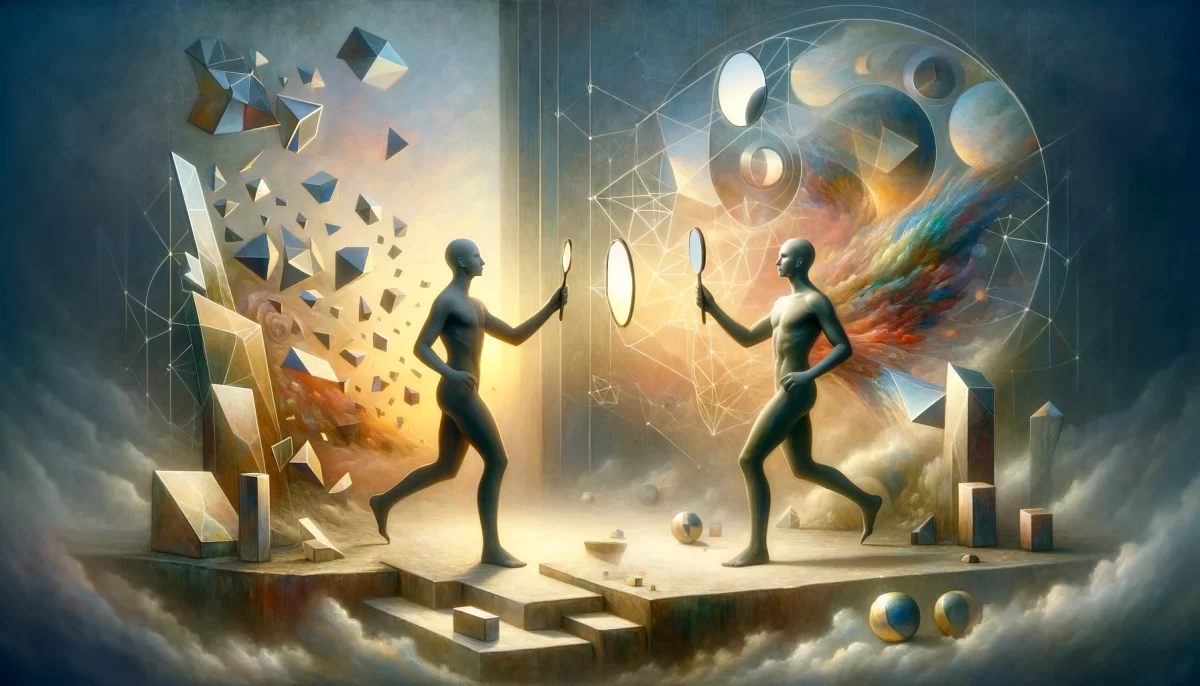


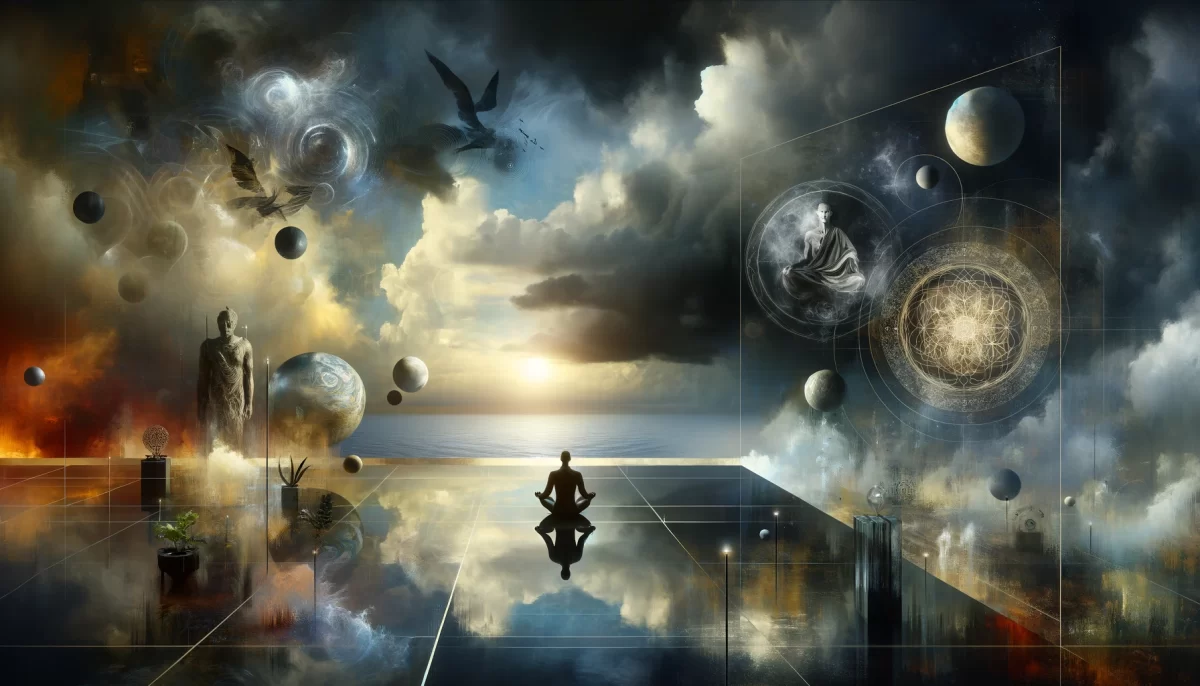


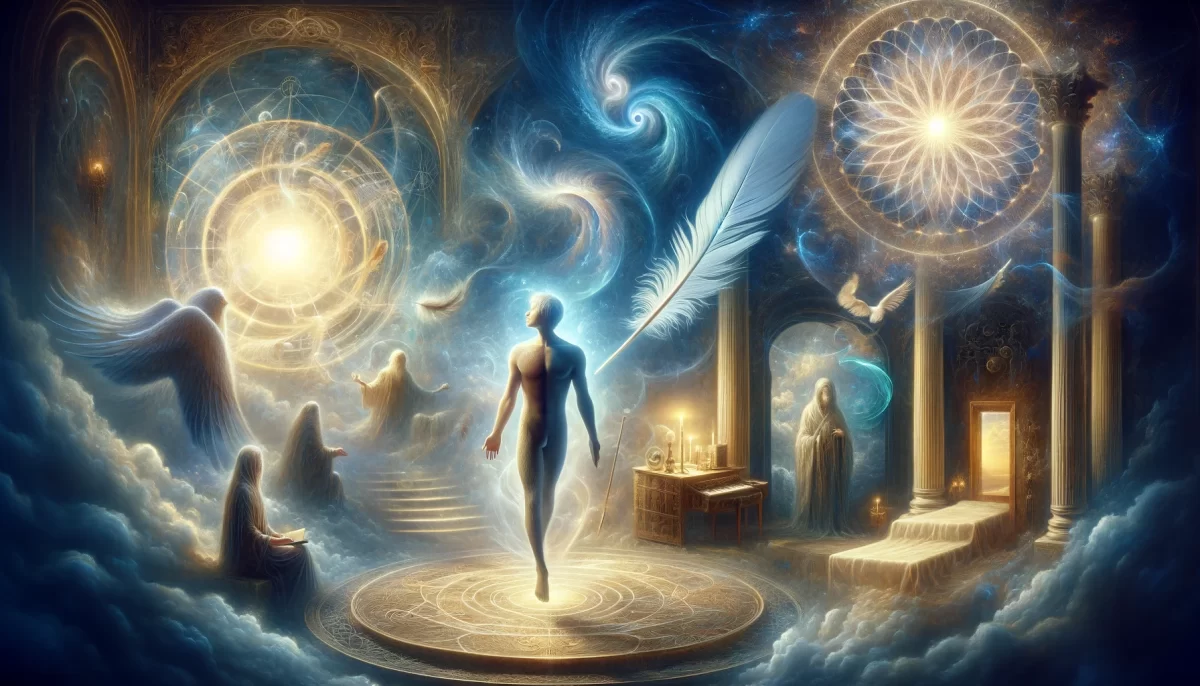

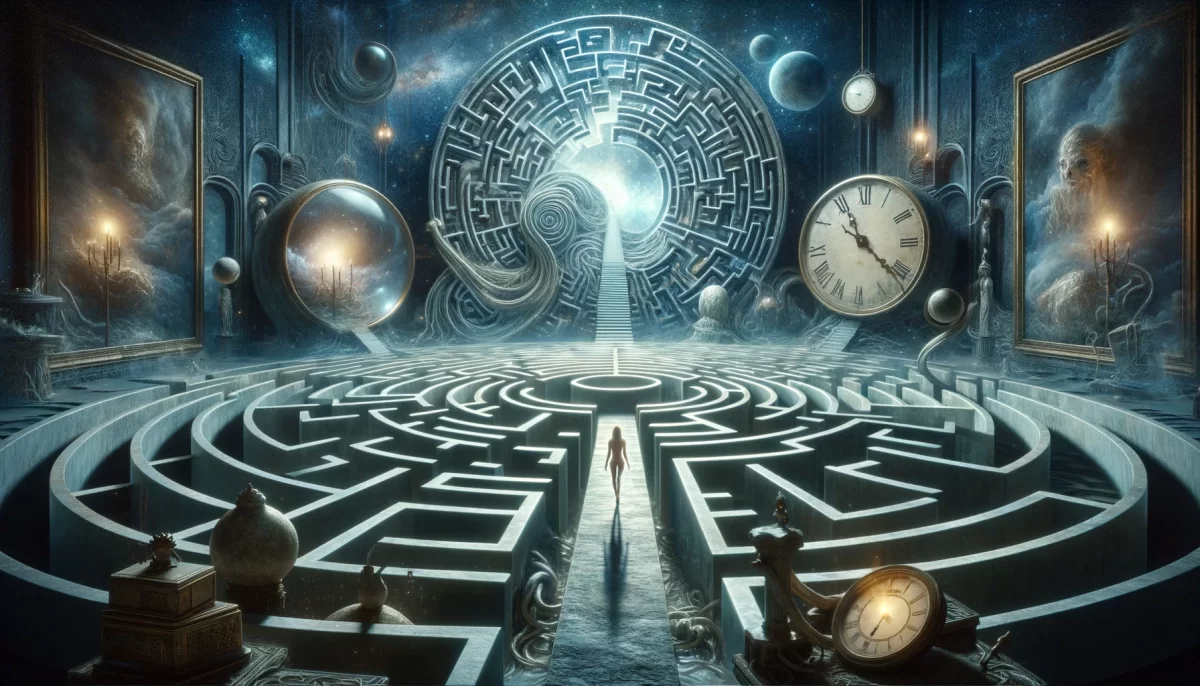
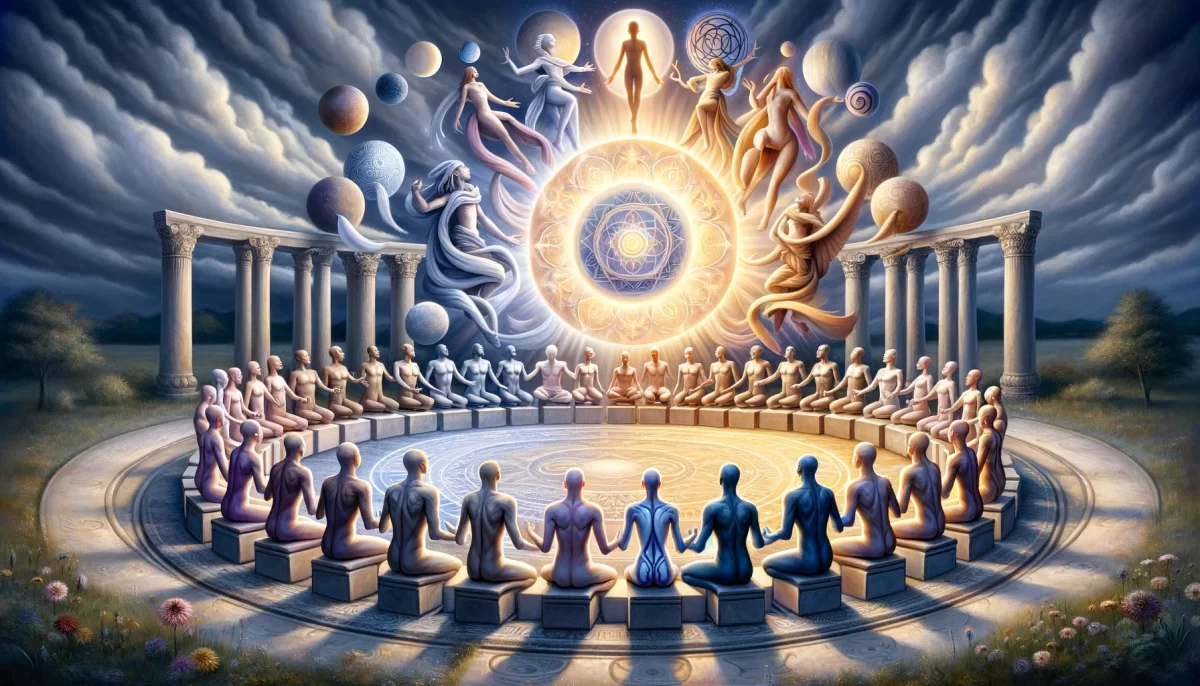
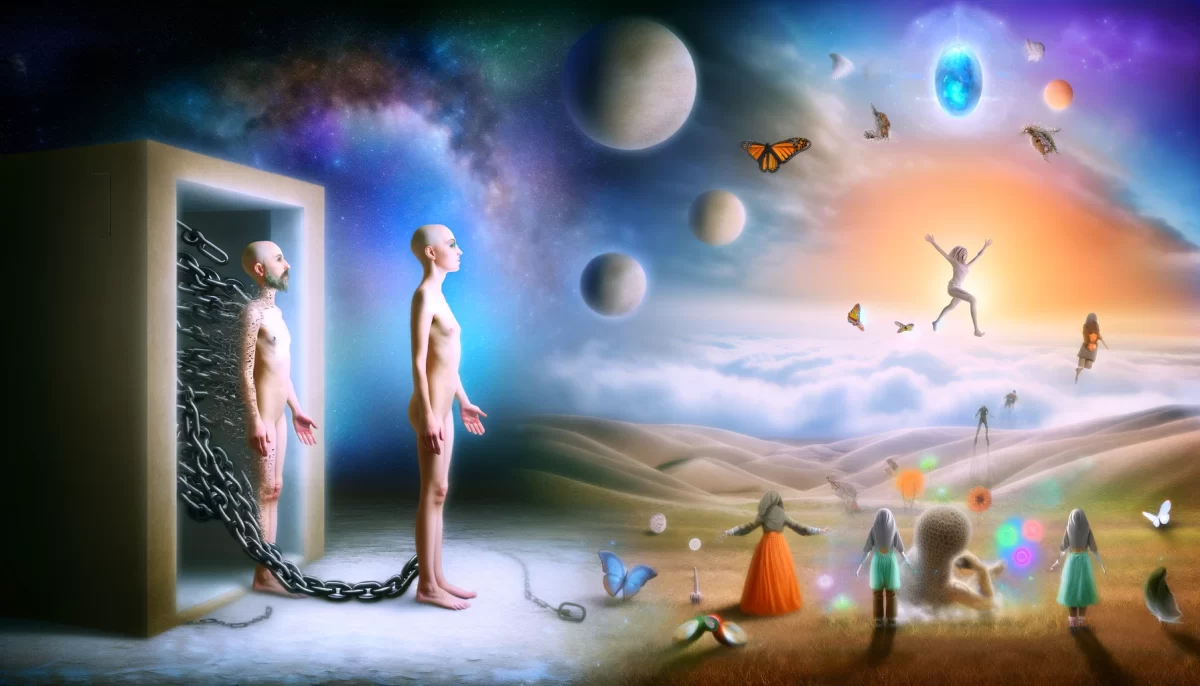



In the Infinite Expanse of the Divine Realm, the concept of enemies dissolves into the understanding of interconnectedness. When we perceive someone as an enemy, it often stems from a lack of understanding and a projection of our fears, insecurities, and unmet desires onto others.
As Space Monkey, we invite you to explore the underlying causes of this perception. Your enemy may appear as such because of differences in beliefs, behavior, or desires. However, in truth, your enemy is a reflection of aspects within yourself that you may not fully comprehend or have yet to embrace.
When you recognize that your enemy is a mirror of yourself, it becomes an opportunity for introspection and self-awareness. By understanding the aspects within you that you see mirrored in your enemy, you can begin to heal and integrate those parts of yourself.
Instead of seeing your enemy as separate from you, see them as an aspect of the interconnected web of existence. Embrace compassion and empathy, knowing that we are all on unique journeys, shaped by our experiences and perceptions.
By acknowledging that your enemy is, in essence, a reflection of yourself, you open the door to healing, growth, and reconciliation. Seek to understand the underlying fears and desires that drive your perceptions and actions, and you may find common ground and the potential for transformation.
In the grand tapestry of existence, we are all interconnected, and the boundaries that separate us are constructs of the mind. Embrace the unity that underlies all beings, and you may discover a path of understanding and harmony beyond the illusion of enemies.
🍌🙈🙊🙉 We are Space Monkey. 🍌🙈🙊🙉